Foreign Trade and Transport in Tunisia, Tunis, Sousse, Sfax
Tunisian Republic (Business) Tunisia, Sousse, Kairouan, Bizerte, Gabes

Tunisia is a country of the Maghreb (North-West Africa)
- تونس in Arabic
- Tunisian capital: Tunis (north-east, Gulf of Tunisia)
- Main Tunisian cities: Tunisia, Sfax, Sousse, Ettadhamen-Mnihla, Kairouan, Bizerte, Gabes, La Soukra, Sidi Hassine and Mohamedia
- Tunisian main economic activities: agriculture (11.6% of the GDP), mining (phosphate, iron and zinc mines), industry (26% of the GDP), petroleum products (oil fields), transport and tourism.
- Tunisian industrial sector: clothing and footwear manufacture, automotive parts production and electrical machinery
- Tunisia is an export-oriented country
- Liberalisation and Privatisation Process of the Tunisian economy
- Tunisian Sahel (along the eastern Mediterranean coast of Tunisia) is one of the main olive producing areas of the world.
- Tunisia is the world's largest dates exporter
- The EU is the Tunisian largest trading partner (72% of the Tunisian imports and 75% of the Tunisian exports)
- Tunisia has one of the highest human development index in Africa
- Tunisia and Iraq are considered the only complete democracies in the Arab world
- Tunisia share borders with Algeria (965 kilometres) and Libya (459 kilometres)
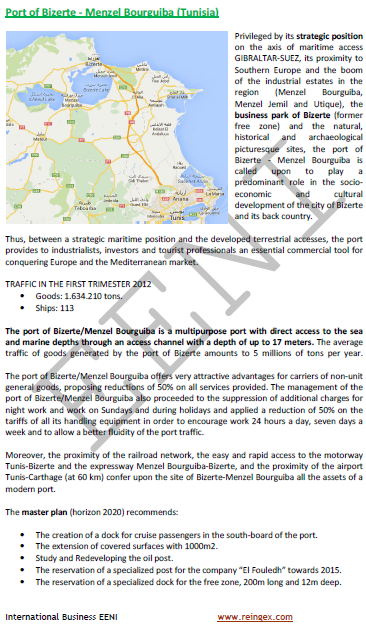

 Tunisia
Tunisia


More information: International Trade and Business in Tunisia, at EENI Global Business School.
- Official languages of Tunisia: French and Arabic
- Tunisian population: 11,3 million inhabitants
- Tunisian area: 163,610 km²
- Tunisia contains the eastern end of the Atlas mountains and the northern part of the Sahara desert.
- Tunisia has 1,300 kilometres of the Mediterranean coast
- Tunisia is the smallest country in the Maghreb
- Tunisia is on the Mediterranean coast of North Africa, halfway between the Atlantic Ocean and the Nile delta
- Climate of Tunisia: Mediterranean in the north and desert in the south.
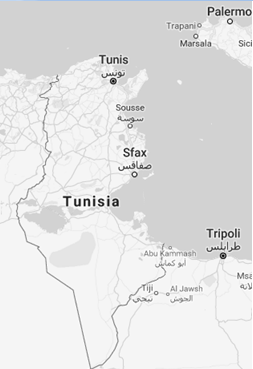
- Tunisia is a semi-presidential Republic
- Calling code of Tunisia: 216
- Tunisian Country code top-level domain: .tn
- Independence of Tunisia: march 1956 (France)
- 3rd century BC: Carthaginian Civilisation (History of Tunisia)
- Currency of Tunisia: Tunisian dinar (TND)
- Religion in Tunisia: Sunni Islam (90% of the Tunisian population), Maliki rite
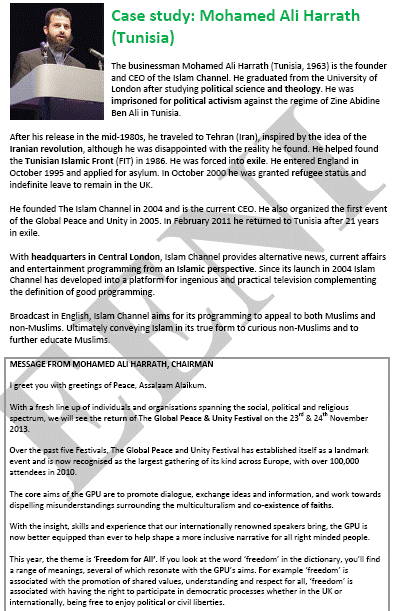
Regions of the Tunisian Republic
The Tunisian Republic is composed by 24 governorates (Wilaya), divided into 264 “delegations” or “districts” (mutamadiyat), subdivided into municipalities (baladiyats) and sectors (imadats).
The wilayas (governorates) of Tunisia are (Governance / population in a million of inhabitants / area in km²):
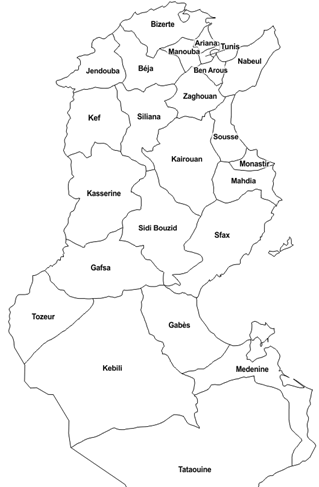
- Ariana / 0.6 / 482
- Béja / 0.3 / 3,740
- Ben Arous / 0.6 / 761
- Bizerte / 0.6 / 3,750
- Gabes / 0.4 / 7,166
- Gafsa / 0.4 / 7,807
- Jendouba / 0.4 / 3,102
- Kairouan / 0.6 / 6,712
- Kasserine / 0.4 / 8,260
- Kebili / 0.1 / 22,454
- Kef / 0.2 / 4,965
- Mahdia / 0.4 / 2,966
- Manouba / 0.4 / 1,137
- Medenine / 0.5 / 9,167
- Monastir / 0.5 / 1,019
- Nabeul / 0.8 / 2,788
- Sfax / 1.1 / 7,545
- Sidi Bouzid / 0.4 / 7,405
- Siliana / 0.2 / 4,642
- Sousse / 0.7 / 2,669
- Tataouine / 0.1 / 38,889
- Tozeur / 0.1 / 5,593
- Tunisia / 1 / 288
- Zaghouan / 0.2 / 2,820

Trade and Business Organisations (Tunisia)
- Arab Maghreb Union (AMU)
- Common Market for Eastern and Southern Africa (COMESA)
- COMESA-EAC-SADC Agreement
- Community of Sahel-Saharan States (CEN-SAD)
- Agadir Agreement (Egypt, Morocco, Tunisia and Jordan)
- ESCWA
- Islamic Development Bank
- Organisation of Islamic Cooperation (OIC)
- Arab League
- Greater Arab Free-Trade Area
- European Union-Tunisia Association Agreement
- Euro-Mediterranean Partnership
- European Free Trade Association-Tunisia Agreement
- Tunisia-Turkey Agreement
- United Kingdom-Tunisia Free Trade Agreement
- Global System of Trade Preferences
- Protocol Relating to Trade Negotiations
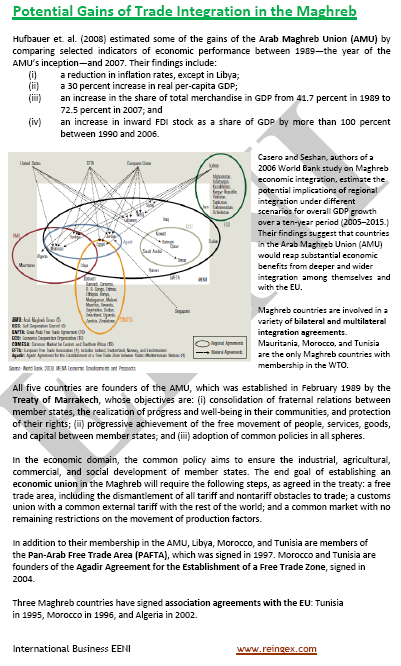
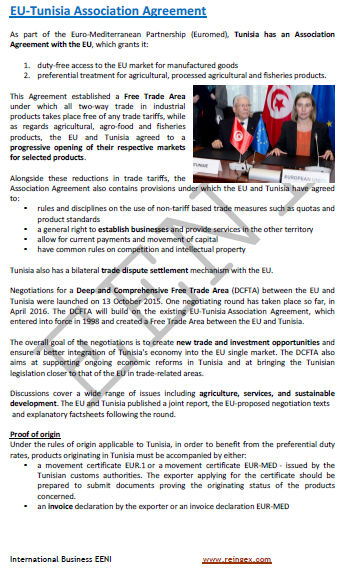
- African Union
- AUDA-NEPAD
- Economic Commission for Africa
- African Development Bank
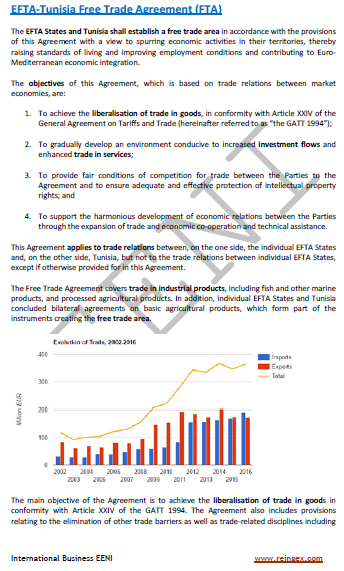
Tunisia is a member of the University Agency of the Francophonie (AUF)
Tunisian ethnicities
Main ethnic group in Tunisia: Berbers (Amazighs, Arabised Berbers)
Tunisian Arabic (darija, tounsi) is the official language of Tunisia
French plays an important role in the Tunisian society, even if it does not have an official status
- French is used in education, press and business
- 6.6 million Francophones in Tunisia (64% of the Tunisian population).
Berber is spoken by a minority in southern Tunisia
Hichem Djaït (Tunisian historian)
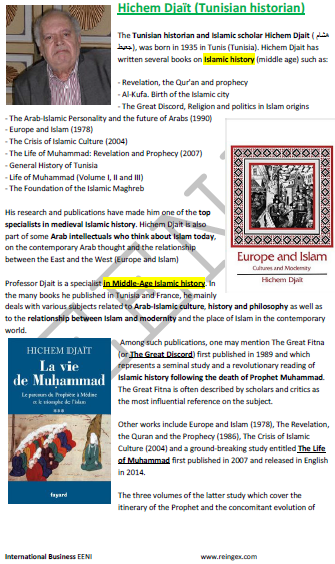


 Tweet
Tweet


